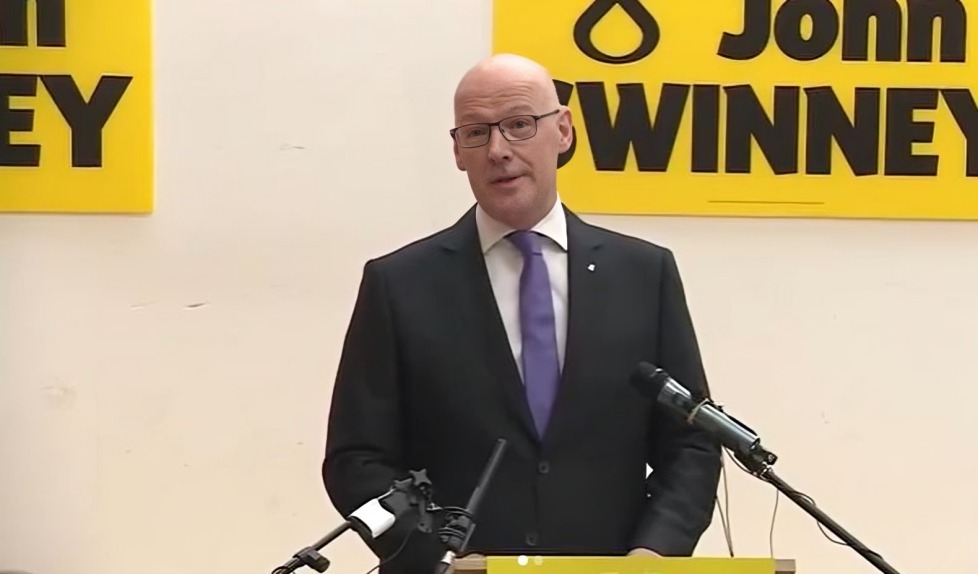Scotland’s Deputy First Minister John Swinney has been thrust into the spotlight after a controversial appearance at a memorial event for former Scottish First Minister Alex Salmond. Swinney, a senior figure in the Scottish National Party (SNP), was booed by the crowd and called a “traitor” by some attendees, underscoring the growing tensions within Scottish politics.
Memorial Event and Rising Tensions
The event, which took place in late November 2024, was intended to honour Alex Salmond’s contributions to Scottish independence and his role in creating the Scottish Parliament. However, what was meant to celebrate Salmond’s legacy became a flashpoint for internal conflicts within the SNP.
Many were surprised by John Swinney’s presence at the event, particularly given the ongoing political rift between Swinney and Salmond. The two have not been on good terms in recent years, with Salmond’s departure from the SNP and subsequent formation of the Alba Party deepening the divisions within the Scottish independence movement.
During the event, as Swinney took to the stage to speak, a wave of boos erupted from the crowd. Some individuals in attendance shouted “traitor” as he attempted to address the gathering. The hostile reception underscores the growing frustration among certain factions of the Scottish independence movement, who feel betrayed by those they perceive as compromising the cause.
John Swinney’s Role in Scottish Politics
John Swinney has been a prominent figure in Scottish politics for decades. A member of the SNP since the 1980s, he served as the party’s leader between 2000 and 2004 before stepping down in favour of Alex Salmond. Since then, Swinney has held various influential positions, including Finance Secretary and, more recently, Deputy First Minister.
Swinney has been a key advocate for Scottish independence and has played a central role in the SNP’s political strategy. However, in recent years, he has found himself at the centre of a factional struggle within the party, particularly in the wake of Salmond’s resignation from the SNP and his creation of the Alba Party. Salmond’s departure created a schism in the independence movement, with some supporters continuing to rally behind Salmond’s vision for an independent Scotland. In contrast, others have remained loyal to Nicola Sturgeon and the current leadership of the SNP, of which Swinney is a senior member.
This divide has contributed to the heated tensions, with figures like Swinney often caught in the crossfire. While some view Swinney as a dedicated and experienced leader, others see him as a symbol of the SNP’s shift away from Salmond’s original vision for Scotland’s future.
Political Fallout from the Event
The incident at the memorial event has sparked widespread debate within Scottish political circles. Many commentators have noted that the public backlash against Swinney signals a deeper rift within the independence movement, which could have serious ramifications for the SNP in the coming years.
Swinney’s critics argue that his support for the current leadership and his role in the party’s direction has distanced him from those loyal to Salmond. This perception of betrayal has intensified since Salmond departed from the SNP in 2018, with many accusing Swinney and other senior figures of undermining Salmond’s legacy and abandoning the core principles of Scottish independence.
The Alba Party, which Salmond founded, has continued to advocate for an independent Scotland through a more radical approach, challenging the SNP’s more pragmatic stance. Swinney, as part of the SNP’s leadership, has been at the centre of this ideological battle, and the hostile reception at the memorial event highlights just how polarising these divisions have become.
On the other hand, supporters of Swinney and the current SNP leadership argue that the party must focus on pragmatic, achievable steps towards independence, rather than adhering to the more confrontational rhetoric espoused by Salmond and the Alba Party. For them, the path to independence is building a broad coalition and working within Scottish politics and international diplomacy frameworks.
Reactions from Fellow Politicians
The incident has also prompted reactions from various political figures across Scotland. Nicola Sturgeon, the current First Minister of Scotland and a close ally of Swinney, has supported her deputy. Following the event, Sturgeon condemned Swinney’s hostile treatment, calling it “unacceptable behaviour” and a reflection of “the ugly side of politics.”
However, Sturgeon has also faced criticism from within her own party for not doing enough to address the growing division between SNP factions. Some within the party feel that the leadership has not adequately addressed the concerns of those who feel alienated by the party’s current direction.
Meanwhile, leaders of the Alba Party, including Alex Salmond himself, have seized on the incident to further their own political narrative, portraying it as evidence of the SNP’s failure to remain true to its original mission. Salmond has called for a re-evaluation of Scotland’s independence strategy and has suggested that the SNP is losing touch with the grassroots supporters who helped propel the party to power.


